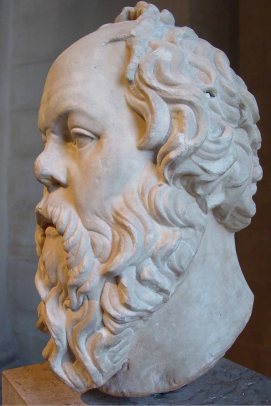Tim Maudlin explains why physics needs philosophy: “What philosophy offers to science, then, is not mystical ideas but meticulous method. Philosophical skepticism focuses attention on the conceptual weak points in theories and in arguments. It encourages exploration of alternative explanations and new theoretical approaches.”
Month: April 2015
Why be good?
So suppose you have figured out right and wrong. You know what makes right acts right and wrong acts wrong. But why be good? Why should you go ahead and do the right thing? Here are some good answers about being good from philosophy, biology, psychology, etc.
I watch therefore I am
Seven philosophers discuss seven movies that address some of philosophy’s big questions: How can we do the right thing? What makes a life worth living? Can anything really be justified? Is there more to us than biology? Are the things that we imagine real? What is the enduring self? Is the quest for good a road to evil?
Cigarettes and cause-and-effect
We need more than correlation to understand the world, and yet proof of causation is hard to come by. In “Cigarettes, damn cigarettes and statistics,” Tim Harford makes interesting points about causation and correlation in the era of big data.
Philosophical fun for the whole family
… or how son will we eventually figure out that our world does not exist? Should the antinomies of reason and other signs that our world is incoherent and unintelligible lead us to conclude that we are figures in some super-gamers’ game?
Free to be ourselves
As Terry Eagleton notes in his review of Julian Baggini’s Freedom Regained, “Rarely has the idea of freedom been so popular in practice and so disdained in theory.” But we are neither completely autonomous nor completely determined. “What … if our beliefs and desires lead us to act in a way that feels inevitable? Can we still be free if we could not have acted otherwise? Baggini is surely right to claim that we can. In fact, most of the things that matter – being in love, composing a superb sonata, detesting Piers Morgan, feeling horrified by the slave trade – have a smack of inner necessity about them … . What define the self most deeply are the sort of commitments from which we could not walk away even if we tried. The point, however, is that we don’t want to. Freedom from such engagements would be no freedom at all. True liberty lies in being able to realise such a self, not shuck it off.”
